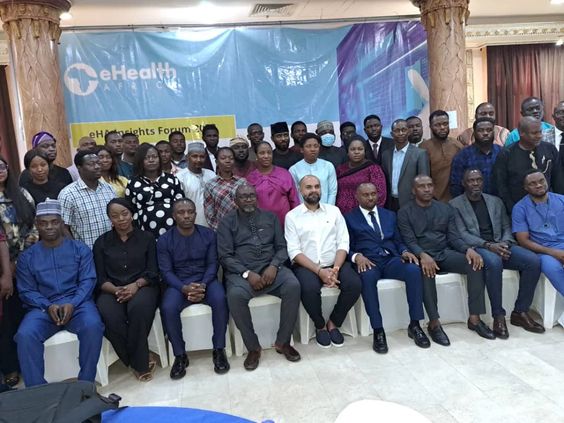Health
eHealth strives to use digital solutions to combat health emergencies

eHealth Africa, a non-governmental organisation, has urged for the integration of digital solutions to combat health emergencies and vaccines, particularly in hard-to-reach regions in Nigeria.
Atef Fawaz, Executive Director, eHealth, made the call during the NGO’s 2023 Insight Learning Forum in Abuja, with the topic “Digital Innovations in Public Health Practise: Lessons and Impact.”
“We all know the challenges in the entire country when it comes to logistics, especially in very remote areas, so the solution was developed to ensure that vaccines can reach everywhere while also emphasising accountability and transparency.”
“With the solution, everyone can see where the vaccines are being picked up and delivered.” It is a comprehensive system that allows for stock monitoring, the request of fresh supplies, and the delivery of vaccines to remote places.
” eHealth demonstrated this by implementing the project in Kano, Bauchi, and Zamfara.” We are currently running a similar programme in Sokoto state to provide to virtually all health facilities.
“This has been very effective in reducing stock outs to a bare minimum.”
“The impact of digital solutions reveals that more than nine million doses of vaccines have been delivered in Bauchi, Zamfara, Kano, and Sokoto, a feat never before accomplished.”
Fawaz, on the other hand, stated that instability and a poor road network continue to be big challenges for the agency.
This, he claims, has a direct impact on everyone’s health, particularly youngsters aged zero to five who require routine immunisations.
Mr Jamil Galadanci, Senior Manager, Software Engineering of the NGO’s Global Health Informatics Units, also spoke, stating that the organisation developed a Logistics Management Information System (LoMIS) to handle supply chain difficulties, particularly in hard-to-reach places.
According to Galadanci, the purpose of LoMIS is to solve the issues that the Nigerian healthcare system faces in assuring the availability of life-saving goods and satisfying national supply chain reliability standards.
“At one point, Nigeria was reported to have the highest number of zero-dose children in the world, which is why we developed the LoMIS to improve vaccine delivery and management in our health facilities.”
“It is also intended to provide near real-time visibility of what is happening across those facilities, which would improve accountability, transparency, and, most importantly, the efficiency with which those facilities are managed.”
“This is in the hope of increasing the availability of those stocks in those health facilities, thereby lowering the percentage of zero-dose children in the country.”
Galadanci stated that ehealth was able to make it easier for parents and the community to get pharmaceuticals while also lowering the burden, which pushed children and their parents to engage in the immunisation.
“In general, I’d say there has clearly been a significant improvement.” We had an 86% improvement in zero doses compared to when we started the LoMIS,” he added.
The gathering is significant, according to Mr Murtala Bello, Director of Pharmaceutical Services, since it is a learning forum where stakeholders may hear from people who have been implementing various digital solutions to improve healthcare delivery in the country.
Bello, who also serves as the state Logistics Officer for the Primary Health Care Development Agency in Sokoto, stated that the state collaborated with ehealth Africa to distribute vaccines to health facilities via the LOMIS digital solutions.
“Currently, the software we use in the state is assisting us in delivering vaccines to our facilities; however, we were having difficulties ensuring the availability of these vaccines at the health facilities.”
“However, thanks to our partnership with ehealth, they are now making deliveries and collecting real-time data as they do so.”
“As a result, we can keep track of the deliveries.” We are also able to increase the facility staff’s capacity in vaccine management.
“With the partnership, we’ve seen a lot of progress in terms of reducing the stock out of these vaccines in our health facilities, improving tool availability, and also improving staff capacity to be able to manage this vaccine as well as harness information that is transmitted real time at the state level.”
Bello stated that as delivery and the use of digital technologies have improved, so has the availability of these vaccines, resulting in enhanced accessibility and higher immunisation coverage in the state.
He stated that the gathering would present stakeholders with further digital health solutions from other people in order to gauge their enthusiasm in using it to successfully handle healthcare delivery service difficulties. (NAN)
